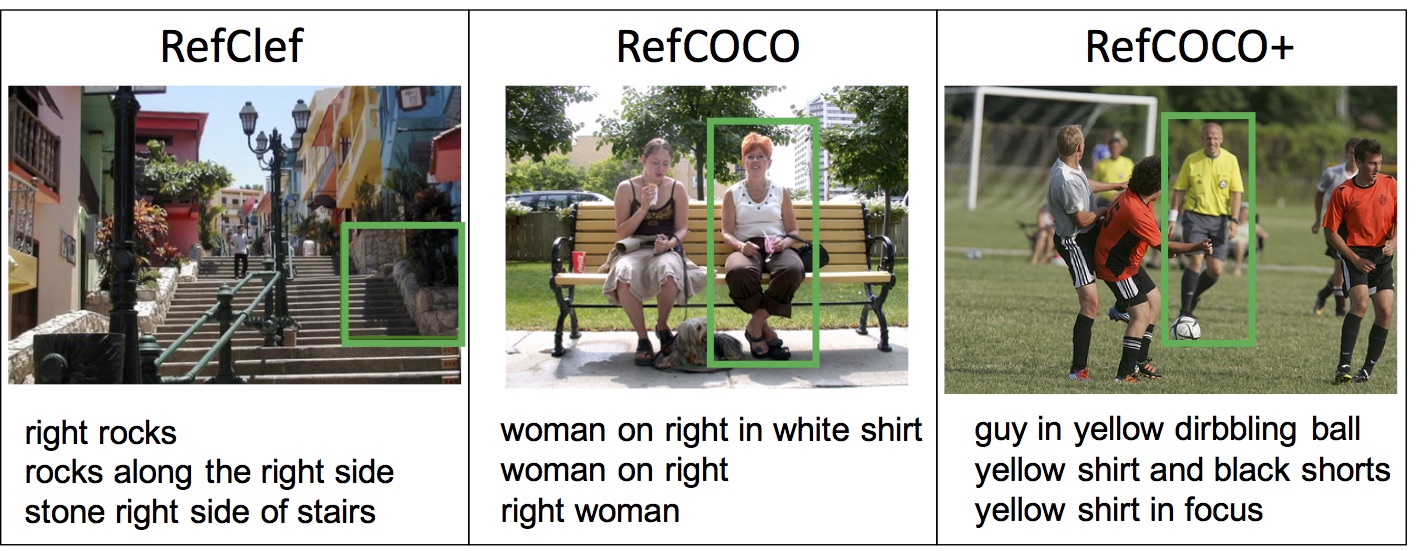This API is able to load all 4 referring expression datasets, i.e., RefClef, RefCOCO, RefCOCO+ and RefCOCOg. They are with different train/val/test split by UNC, Google and UC Berkeley respectively. We provide all kinds of splits here.
 |
If you used the following three datasets RefClef, RefCOCO and RefCOCO+ that were collected by UNC, please consider cite our EMNLP2014 paper; if you want to compare with our recent results, please check our ECCV2016 paper.
Kazemzadeh, Sahar, et al. "ReferItGame: Referring to Objects in Photographs of Natural Scenes." EMNLP 2014.
Yu, Licheng, et al. "Modeling Context in Referring Expressions." ECCV 2016.Run "make" before using the code.
It will generate _mask.c and _mask.so in external/ folder.
These mask-related codes are copied from mscoco API.
Download the cleaned data and extract them into "data" folder
Besides, add "mscoco" into the data/images folder, which can be from mscoco
COCO's images are used for RefCOCO, RefCOCO+ and refCOCOg.
For RefCLEF, please add saiapr_tc-12 into data/images folder. We extracted the related 19997 images to our cleaned RefCLEF dataset, which is a subset of the original imageCLEF. Download the subset and unzip it to data/images/saiapr_tc-12.
The "refer.py" is able to load all 4 datasets with different kinds of data split by UNC, Google, UMD and UC Berkeley. Note for RefCOCOg, we suggest use UMD's split which has train/val/test splits and there is no overlap of images between different split.
# locate your own data_root, and choose the dataset_splitBy you want to use
refer = REFER(data_root, dataset='refclef', splitBy='unc')
refer = REFER(data_root, dataset='refclef', splitBy='berkeley') # 2 train and 1 test images missed
refer = REFER(data_root, dataset='refcoco', splitBy='unc')
refer = REFER(data_root, dataset='refcoco', splitBy='google')
refer = REFER(data_root, dataset='refcoco+', splitBy='unc')
refer = REFER(data_root, dataset='refcocog', splitBy='google') # test split not released yet
refer = REFER(data_root, dataset='refcocog', splitBy='umd') # Recommended, including train/val/test